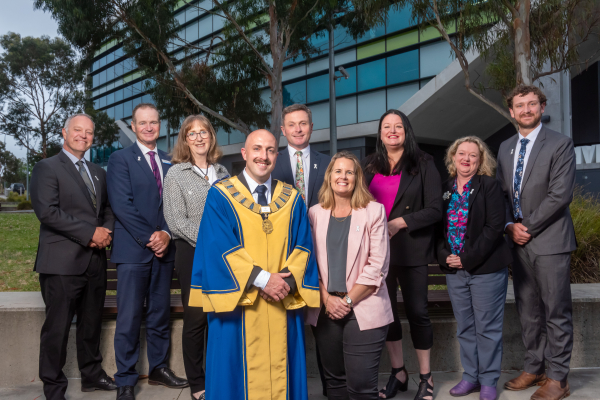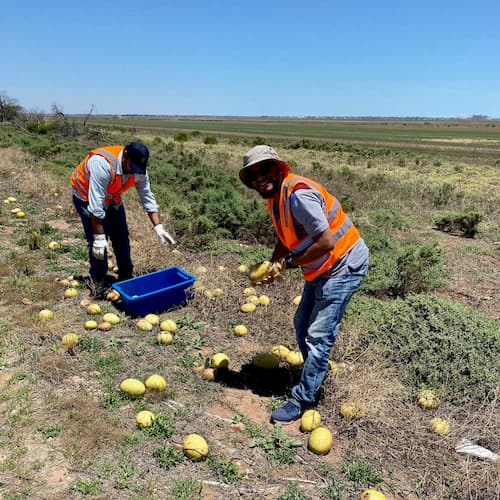
Joint Media Release
Farmers have teamed up with the tourism sector to call for a controlled and COVID-safe restart of the Working Holiday Maker (WHM) Program.
In pre-COVID times, backpackers could make up to 80% of a farm’s seasonal workforce. The number of backpackers currently in the country is less than half the number this time last year. The number continues to decline as backpackers return home.
The shortage is proving a significant headache for farmers as they go into the peak harvest season and for tourism operators as the summer holiday months approach.
In a joint letter to government, NFF CEO Tony Mahar and Backpacker & Youth Tourism Advisory Panel representative Wendi Aylward have called for a three-phased approach to safely resume the flow of backpackers. The plan is also supported by the Tourism and Transport Forum.
“A recent report detailed that without access to WHMs, the fresh fruit and vegetable industry may suffer a $6.3 billion reduction in value and the cost of fresh produce could increase by 60 per cent,” Mr Mahar said.
“It may also place pressure on the availability of some varieties of fruit and vegetables as farms lack the staff needed to pick and pack this crop and plant the next one.”
“While employing Australians will always take precedence, a safe restart if the WHM program would assist to address agriculture labour shortages.
“Even with the welcome measures announced by government, such as the Federal budget subsidies designed to encourage Aussies to take up farm jobs, the horticulture sector alone is forecast to have to have worker deficit of up to 26,000 by March 2021.
“To date, the restart of the Pacific labour arrangements which commenced in August have resulted in just over 300 workers arriving in Northern Territory, a long way short of what will be needed by early 2021.
“The latest ABS job figures indicate that the number of people employed in agriculture has declined significantly in recent months, eclipsed only by industries like hospitality and performing arts which have been directly affected by the pandemic. With one of the strongest harvest seasons in recent memory the only explanation is not that we are losing work but, that we are losing access to workers.”
Ms Aylward said the contribution of WHM arrivals to the local economy could not be underestimated.
“Backpackers represent an important sector for Australia’s visitor economy worth $3.2 billion, delivering more than 200,000 young international travellers to Australia each year.
“WHMs spend more, stay longer and disperse more widely throughout Australia than most other travellers. Each WHM brings $5,000 with them as a visa requirement, and spends $10,300 during their stay, compared to $687 per trip that Australians spend domestically and $474 spent by Australian youth domestically.”
The WHM restart pilot program developed by NFF, BYTAP and supported by the tourism sector proposes a focus on backpackers from countries, which have demonstrated lower rates of new infections than Australia and which have comprehensive testing regimes in place.
Phase 1 includes a trial period of fully arranged programs supported through selected COVID-safe sponsor agencies who specialise in youth travel with a focus on agriculture and au-pair placements.
Phase 2 includes a carefully staggered ramp up with ‘loosening’ of the rigidity of Phase 1 and an extension of the program into other participating states as interstate border restrictions ease and/or as COVID-safe international corridors are expanded.
Phase 3 would continue to feature safety precautions in the nature of testing and arrival quarantine, but participants would have fully independent travel (subject to any domestic restrictions) with employment arranged on arrival.
Central to the proposal is the requirements for participants to be tested for COVID-19 prior to departing their home country and then once in Australia, to quarantine for the period recommended by the AHPPC.
The NFF and BYTAP propose the identification of affordable quarantining facilities for those participating in all three phases of the program.
Mr Mahar said the WHM restart pilot proposal aimed to support Australian tourism, the agricultural industry and working families dependent on seasonal workers and Working Holiday Makers.
“Equally important is the safeguarding of the health, safety and wellbeing of the Australian public, tourism and agricultural industries, and travellers who participate in this program.
“We believe this proposal outlines a strategy to deliver on both imperatives. We look forward to working with Federal and state governments on implementing this pathway to as soon as safe and practicable, welcome WHMs back to Australia.”







